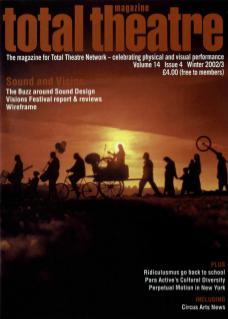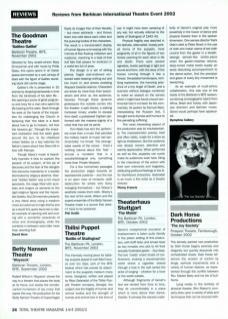Directed by Tony award-winner Mary Zimmerman and with music by Philip Glass, this opera opens in an Italian piazza dominated by a vast canopy of stars with the figure of Galileo standing stock still centre stage.
Galileo's life is presented in ten scenes by stepping backwards in time from the blindness of his later life – the opening a scene of great poignancy and irony for a man who spent his life looking at the stars. Back through his exile at the hands of the inquisition for challenging the Church in believing that ‘the bible is a book about how to go to heaven, not how the heavens go'. Through the important realisation that the earth goes around the sun, to his childhood where Galileo as a boy watches his father's opera about how Orion fell in love with Merope.
Though Glass' music is beautifully hypnotic it fails to capture the passion of its subject – of the joy of discovery and the fear of the dangers this discovery represents in a society dominated by religious doctrine. However, Galileo Galilei was a rich visual spectacle, the stage filled with acrobats and singers as servants to the rigid religious figures and the inquisitive Galileo. But Zimmerman presents a very literal story using a medium more accustomed to high drama and as a result this opera becomes a classic example of opening well and ending with a wonderful crescendo of voice and choreography, while the contents in-between were little more than diverting fluff.

